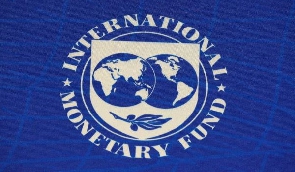The International Monetary Fund (IMF) has said that actions by central banks including the Bank of Ghana (BoG) have boosted investor risk appetite.
According to the Bretton Wood institution, policy rates in a number of countries have been cut further and investors expect interest rates to remain at very low levels for several years.
In its Global Financial Stability update amid COVID-19, the Fund said: “swift and bold actions by central banks aimed at addressing severe market stress have boosted market sentiment, including in emerging markets, where asset purchases have been deployed in a number of countries for the first time, helping bring about the easing in financial conditions.”
It said financial conditions have eased, but Insolvencies Loom Large
“Amid huge uncertainties, a disconnect between financial markets and the evolution of the real economy has emerged, a vulnerability that could pose a threat to the recovery should investor risk appetite fade”, it emphasized.
Other financial system vulnerabilities it said may be crystallized by the COVID-19 pandemic, adding “high levels of debt may become unmanageable for some borrowers, and the losses resulting from insolvencies could test bank resilience in some countries”.
Some emerging and frontier market economies are also facing refinancing risks, and market access has dried up for some countries.
It urged authorities to closely monitor financial vulnerabilities and safeguard financial stability while continuing to support the real economy.
The BoG at the beginning of the growing COVID-19 pandemic in Ghana outlined several measures to lessen the impact of the disease on access and cost of borrowing.
In taking the policy decision in March 2020, the Monetary Policy Committee noted the imminent risks posed by the COVID-19 on domestic economic activity and decided to reduce the policy rate from 16.0 per cent to 14.5 per cent.
The MPC further announced other macro-prudential policies to ease liquidity conditions to enable banks to provide the needed financial support to the economy.
In particular, the primary reserve requirement, capital adequacy ratio, and capital conservation buffer were eased to enable banks to support economic activity.
Measures aimed at reducing the cost of mobile money transactions to households were similarly announced.
- Financial sector clean-up: 900 people dead, pay us by June 30 - GCFM customers to government
- Bank of Ghana governor denies calling NDC MPs hooligans
- Ghana to become top destination for fintech investments – BoG
- Here is why BoG suspended forex trading licences of GT Bank, FBN Bank
- Bank of Ghana, Development Bank Ghana to launch 3i Africa Summit in Accra
- Read all related articles













